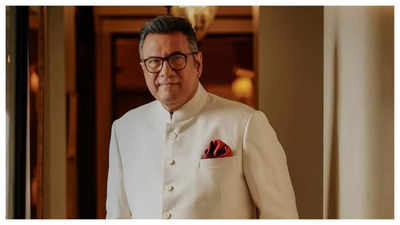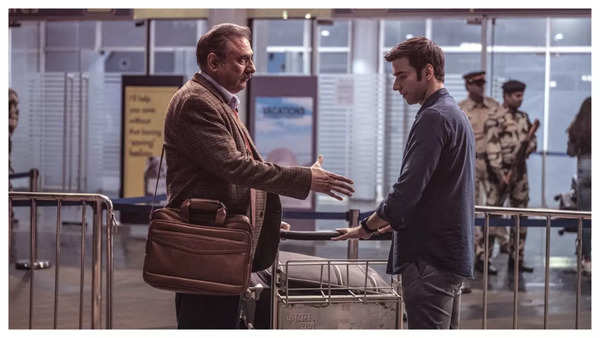Boman Irani has long been celebrated for his acting prowess, but with
The Mehta Boys
, he has impressed audiences as a director as well. At 64, he made his
directorial debut
with the father-son drama, a film close to his heart. But this transition wasn’t sudden — it was a dream that had been years in the making.
Boman and Avinash Tiwary in a still from The Mehta Boys
He shares, “I think I always wanted to direct, even as a child. However, life has a way of taking you in different directions through responsibilities, circumstances, detours. One day, you’re caught up in something else, and before you know it, years have passed. But even when I was running my wafer shop, I was writing. Writing, writing, writing — maybe unknowingly preparing for this day. Even when I was a photographer, I wrote. I wrote plays. I dabbled in different things. Then, when Indian cinema embraced me, I let that chapter play out. I worked with some of the best, observed, learned. And when I finally felt the time was right to direct, I realised it was still not the time because I had to learn to write. You’re not a writer by default. You have to earn that title. You have to pay your dues, learn to shape a story, understand the technique, read, do workshops. You have to unlearn and then start over. Only then can you say, ‘Now, I’m ready.’”
For him, experience has been his greatest teacher. He says, “Have I thought through every scene, every line, every word? Does every word carry weight? Is every scene solid? Is every line free of excess? You write and rewrite until you get it right. A film like The Mehta Boys can easily meander, especially when it’s a slice-of-life story. It can feel unstructured — nice moments, true-to-life moments, but no cohesion. That’s why the technique is so important. And that’s something I had to learn over the years.”
Having worked with some of the finest filmmakers in the industry, Boman acknowledges that each one has, in some way, influenced his own approach to direction. He shares, “Every single director I’ve worked with has left an imprint on me. Sometimes, you learn from the way someone gives the briefest, most precise direction to an actor. Sometimes, it’s about decision-making — some directors don’t second-guess; they make choices instinctively, without hesitation. Directing isn’t just about instructing actors. It’s about people and human emotions. Even the DOP isn’t just a technician — he’s a character in the film’s journey. He needs to be on the same page as you. If there’s a clash in vision, you have to listen. That’s what direction is about. Every single detail has to add up. Sound, visuals, textures — everything contributes to the final story.”
Looking back at his journey, he feels fortunate to have learned from some of the best. “I’ve been lucky — Raju Hirani, Farhan Akhtar, Subhash Kapoor, Shyam Benegal… I mean, I’ve worked with legends. Even though Sanjay Leela Bhansali never directed me, he produced a film I was in, and just listening to him on set was a learning experience. Vidhu Vinod Chopra — his energy, the way he speaks, the way he motivates people — I owe so much to him. You pick up something from everyone. That’s the beauty of this industry,” he concludes.



